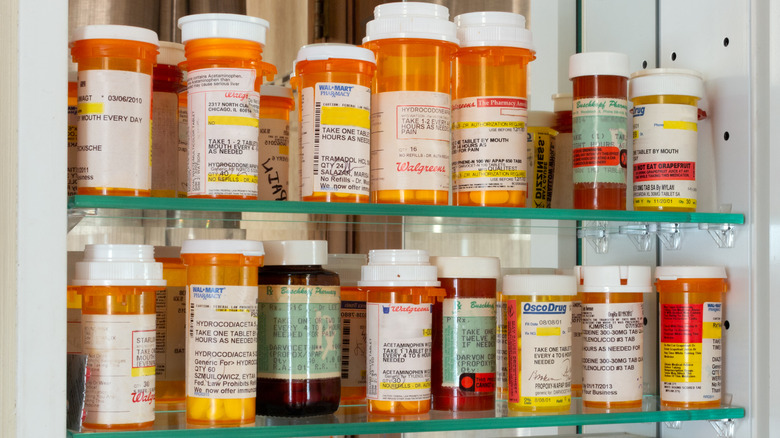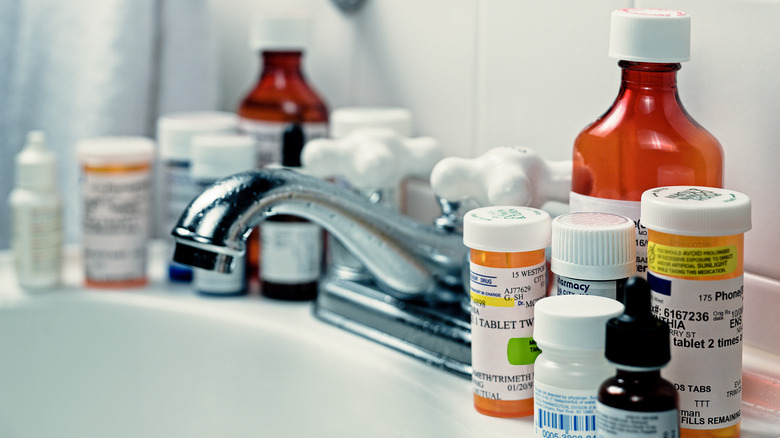The Surprising Place You Shouldn't Store Your Medication
Some probiotics and children's medicine need to be kept in the refrigerator, and although you may not know it, they aren't the only meds that require certain storage conditions. Antibiotics, blood pressure pills, birth control, and even decongestants are just some medications that are susceptible to ruin if stored improperly.
Board-certified clinical pharmacist Frieda Wiley shared her expertise on how to properly store medications and pitfalls to avoid (via WebMD). Wiley explained that there are some important factors to take into consideration when storing your medicine, including light and temperature. All medicine should be kept in a temperature-stable area, ideally between 68-77 degrees Fahrenheit, and out of reach of children.
MedlinePlus explains that medications should always be kept in their original bottles. Upon opening, the cotton ball should be removed from the container and thrown away. It is also suggested you refer to your pharmacist for any special storing instructions. But what is the one surprising storage area you should avoid?
Avoid the bathroom cabinet for storing medicine
The bathroom, which might be where you store your prescriptions, is the last place you should be keeping them, according to Wiley (via WebMD). She explains that bathrooms are typically humid due to the steam from hot showers, and the humidity can break down medication. Wiley goes on to say that most pills are taken with water because it helps activate the medicine. In highly humid environments, the medicine can be activated before it leaves the bottle, rendering it ineffective.
The heat of the bathroom can also reduce the effectiveness of medicine. You may notice bottles' storage instructions often state to keep the medicine in a cool, dry area and out of sunlight. MedlinePlus notes that heat and moisture damage capsules and tablets. When exposed to these conditions, aspirin, for example, breaks down into vinegar and salicylic acid.
Storing medicine appropriately is key to keeping them stable and effective, as well as ensuring they do not deteriorate. Wiley suggests storing them in a kitchen cabinet away from appliances, on a bookshelf, or on a nightstand.


